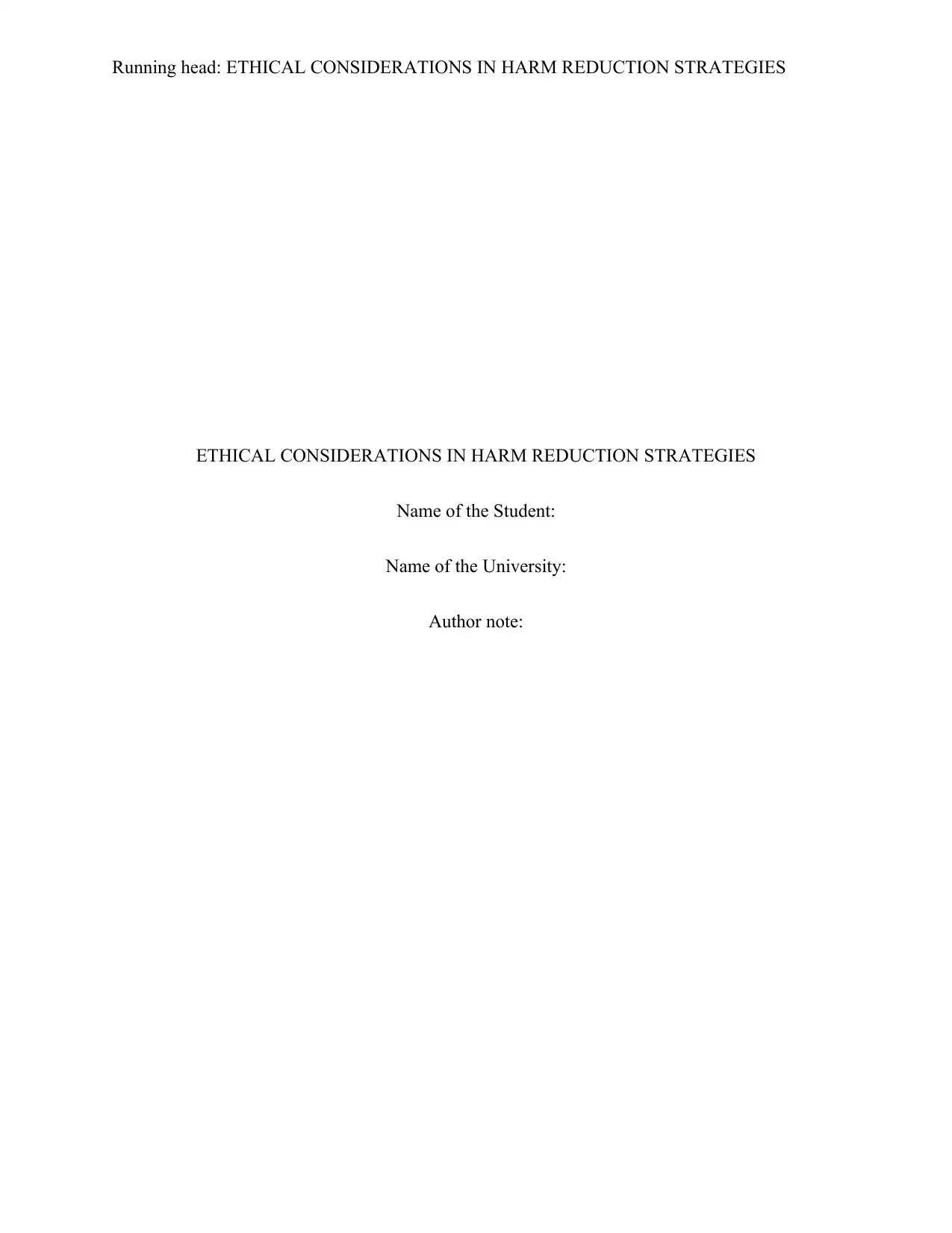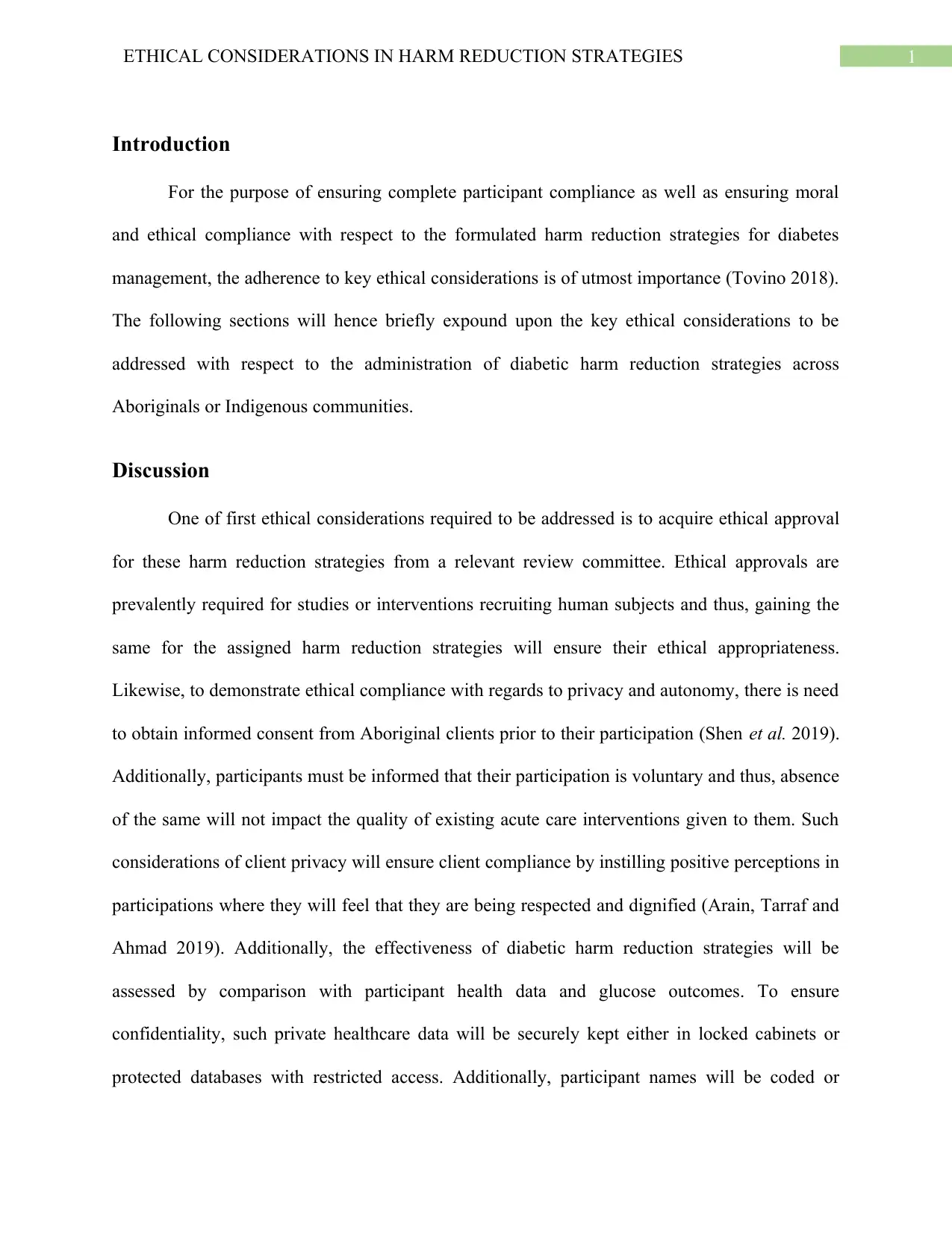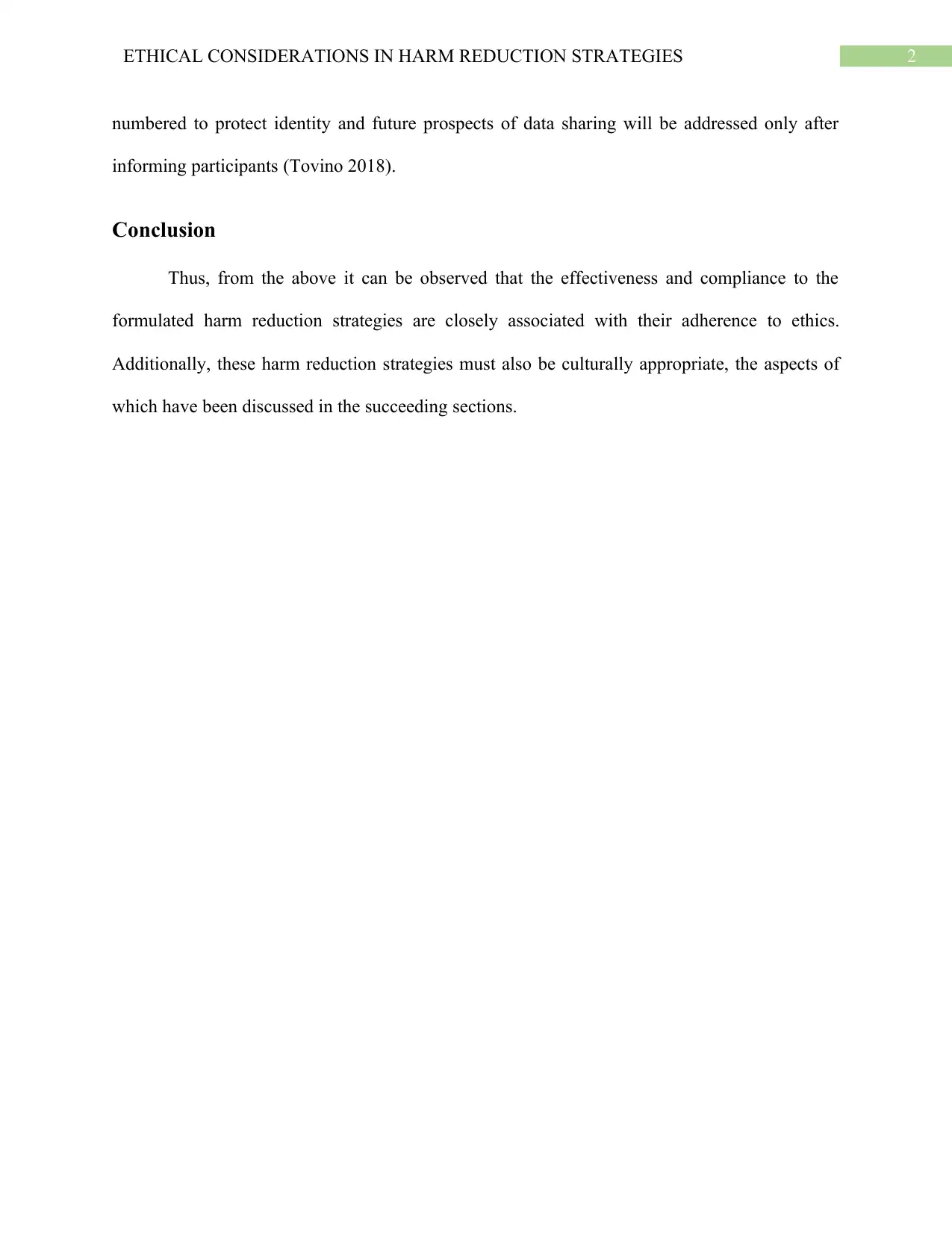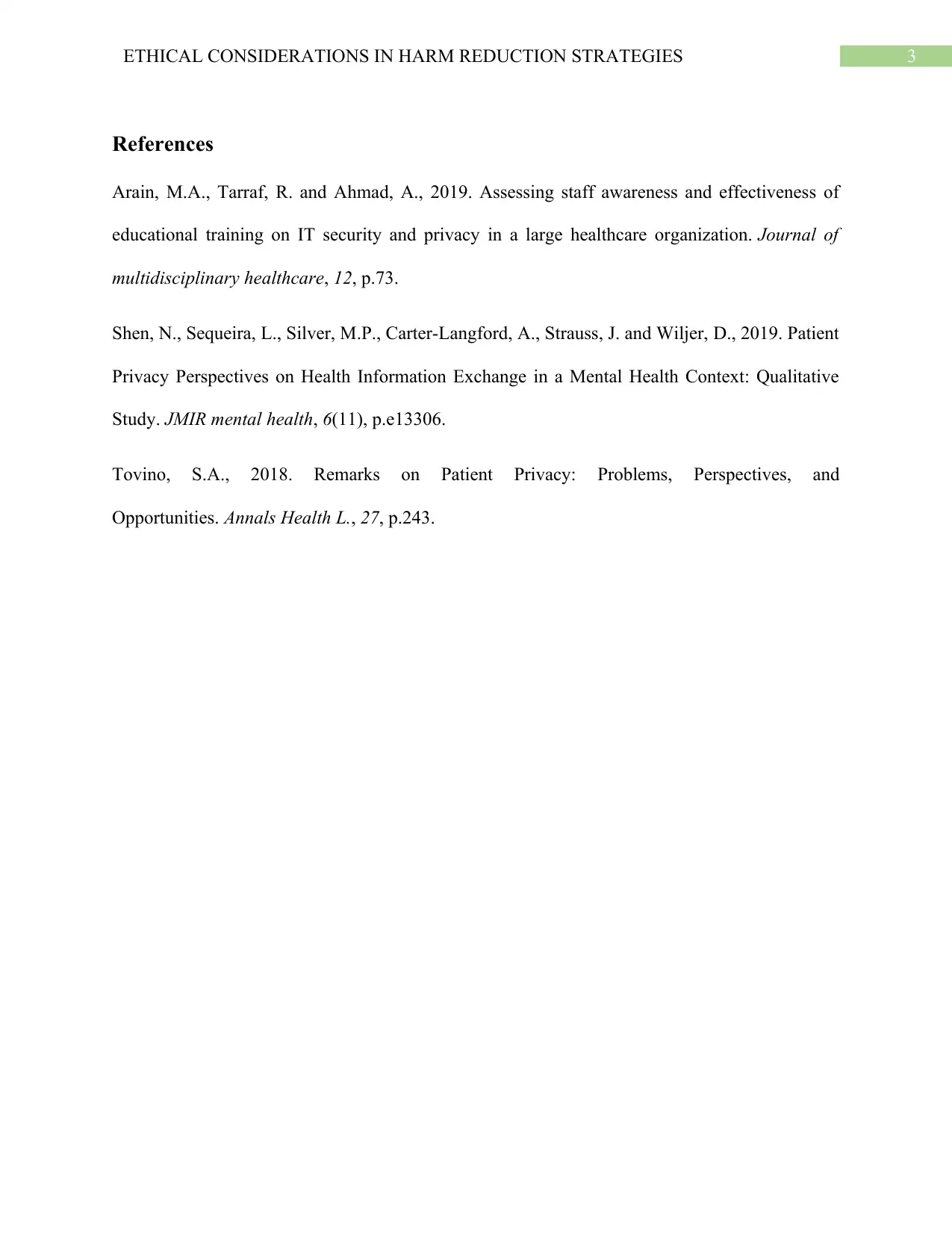Ethical Considerations in Harm Reduction Strategies for Diabetes
VerifiedAdded on 2022/08/19
|4
|526
|37
Report
AI Summary
This report examines the ethical considerations essential for implementing harm reduction strategies in diabetes management, specifically within Aboriginal or Indigenous communities. It emphasizes the importance of ethical approvals from review committees and the necessity of obtaining informed consent from participants, ensuring their voluntary participation and respecting their privacy. The report highlights the significance of maintaining the confidentiality of patient data, securing it through locked cabinets or protected databases, and using coded or numbered participant identifiers to protect their identities. Furthermore, the report stresses the need for cultural appropriateness in these strategies and stresses that adherence to ethical principles is crucial for the effectiveness and compliance of these strategies. The report concludes by referencing relevant literature that supports the importance of ethical practices in healthcare research and interventions.
1 out of 4








![[object Object]](/_next/static/media/star-bottom.7253800d.svg)